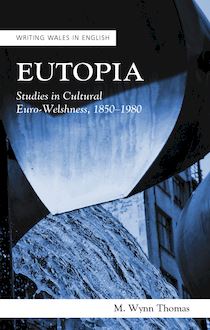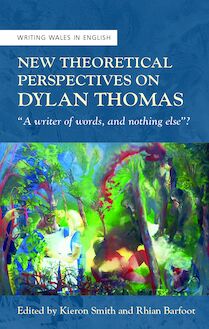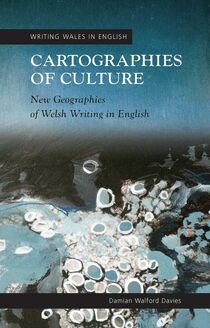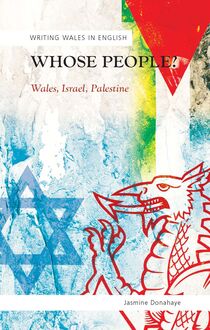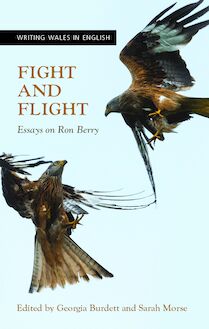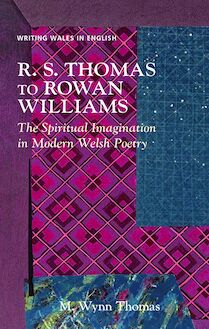The Nations of Wales , livre ebook
179
pages
English
Ebooks
2016
Vous pourrez modifier la taille du texte de cet ouvrage
Obtenez un accès à la bibliothèque pour le consulter en ligne En savoir plus
Découvre YouScribe en t'inscrivant gratuitement
Découvre YouScribe en t'inscrivant gratuitement
179
pages
English
Ebooks
2016
Vous pourrez modifier la taille du texte de cet ouvrage
Obtenez un accès à la bibliothèque pour le consulter en ligne En savoir plus
Publié par
Date de parution
20 mai 2016
Nombre de lectures
0
EAN13
9781783168408
Langue
English
Certain simple and stereotypical images of Wales strike an immediate chord with the public, both in Wales itself and beyond its borders. For much of the twentieth century, the country was thought of as ‘The Valleys’, a land of miners and choirs and rugby clubs. This image of a ‘Proletarian Wales’ (with its attendant Socialist politics) dominated popular imagination, just as the image of ‘Nonconformist Wales’ – a Wales of chapels and of a grimly puritan society – had gripped the imagination of the High Victorian era. But what of the Wales of the late Victorian and Edwardian decades? What image of Wales prevailed at that time of revolutionary social, economic, cultural, religious and political change? This book argues that several competing images of Welshness were put in circulation during that time, and proceeds to examine several of the most influential of these as they took the form of literary texts.
1 Emblematizing the nation
2 Performing political identity
3 O.M. Edwards: keeping track of the gwerin
4 Literature and the political nation
5 The Celtic
6 T. Gwynn Jones: the once and future Wales
7 Evan Roberts: The Ghost Dance of Welsh Nonconformity
8 Arthur Machen: border disputes
Publié par
Date de parution
20 mai 2016
Nombre de lectures
0
EAN13
9781783168408
Langue
English
CREW series of Critical and Scholarly Studies
General Editors: Kirsti Bohata and Daniel G. Williams ( CREW , Swansea University)
This CREW series is dedicated to Emyr Humphreys, a major figure in the literary culture of modern Wales, a founding patron of the Centre for Research into the English Literature and Language of Wales . Grateful thanks are due to the late Richard Dynevor for making this series possible.
Other titles in the series
Stephen Knight, A Hundred Years of Fiction (978-0-7083-1846-1)
Barbara Prys-Williams, Twentieth-Century Autobiography (978-0-7083-1891-1)
Kirsti Bohata, Postcolonialism Revisited (978-0-7083-1892-8)
Chris Wigginton, Modernism from the Margins (978-0-7083-1927-7)
Linden Peach, Contemporary Irish and Welsh Women’s Fiction (978-0-7083-1998-7)
Sarah Prescott, Eighteenth-Century Writing from Wales: Bards and Britons (978-0-7083-2053-2)
Hywel Dix, After Raymond Williams: Cultural Materialism and the Break-Up of Britain (978-0-7083-2153-9)
Matthew Jarvis, Welsh Environments in Contemporary Welsh Poetry (978-0-7083-2152-2)
Harri Garrod Roberts, Embodying Identity: Representations of the Body in Welsh Literature (978-0-7083-2169-0)
Diane Green, Emyr Humphreys: A Postcolonial Novelist (978-0-7083-2217-8)
M. Wynn Thomas, In the Shadow of the Pulpit: Literature and Nonconformist Wales (978-0-7083-2225-3)
Linden Peach, The Fiction of Emyr Humphreys: Contemporary Critical Perspectives (978-0-7083-2216-1)
Daniel Westover, R. S. Thomas: A Stylistic Biography (978-0-7083-2413-4)
Jasmine Donahaye, Whose People? Wales, Israel, Palestine (978-0-7083-2483-7)
Judy Kendall, Edward Thomas: The Origins of His Poetry (978-0-7083-2403-5)
Damian Walford Davies, Cartographies of Culture: New Geographies of Welsh Writing in English (978-0-7083-2476-9)
Daniel G. Williams, Black Skin, Blue Books: African Americans and Wales 1845–1945 (978-0-7083-1987-1)
Andrew Webb, Edward Thomas and World Literary Studies: Wales, Anglocentrism and English Literature (978-0-7083-2622-0)
Alyce von Rothkirch, J. O. Francis, realist drama and ethics: Culture, place and nation (978-1-7831-6070-9)
Rhian Barfoot, Liberating Dylan Thomas: Rescuing a Poet from Psycho-Sexual Servitude (978-1-7831-6184-3)
Daniel G. Williams, Wales Unchained: Literature, Politics and Identity in the American Century (978-1-7831-6212-3)
T HE N ATIONS OF W ALES 1890–1914
WRITING WALES IN ENGLISH
M. WYNN THOMAS
UNIVERSITY OF WALES PRESS 2016
© M. Wynn Thomas, 2016
All rights reserved. No part of this book may be reproduced in any material form (including photocopying or storing it in any medium by electronic means and whether or not transiently or incidentally to some other use of this publication) without the written permission of the copyright owner. Applications for the copyright owner’s written permission to reproduce any part of this publication should be addressed to the University of Wales Press, 10 Columbus Walk, Brigantine Place, Cardiff CF10 4UP.
www.uwp.co.uk
British Library CIP Data A catalogue record for this book is available from the British Library
ISBN 978-1-78316-837-8 (hardback)
978-1-78316-838-5 (paperback)
elSBN 978-1-78316-840-8
The right of M. Wynn Thomas to be identified as author of this work has been asserted in accordance with sections 77 and 79 of the Copyright, Designs and Patents Act 1988.
Llywelyn ap Gruffudd (1916) by Henry Albert Pegram, in the Marble Hall of Cardiff City Hall. Photograph © Rob Hudson Photography.
I’r dyfodol — Joseph ac Elliott — er cof am ran o’u gorffennol
C ONTENTS
Series Editors’ Preface
Preface
1 Emblematising the nation
2 Performing political identity
3 O. M. Edwards: Keeping track of the gwerin
4 Literature and the political nation
5 The Celtic option
6 T. Gwynn Jones: The once and future Wales
7 Evan Roberts: The ghost dance of Welsh Nonconformity
8 Arthur Machen: Border disputes
Notes
S ERIES E DITORS ’ P REFACE
The aim of this series, since its founding in 2004 by Professor M. Wynn Thomas, is to publish scholarly and critical work by established specialists and younger scholars that reflects the richness and variety of the English-language literature of modern Wales. The studies published so far have amply demonstrated that concepts, models and discourses current in the best contemporary studies can illuminate aspects of Welsh culture, and have also foregrounded the potential of the Welsh example to draw attention to themes that are often neglected or marginalised in anglophone cultural studies. The series defines and explores that which distinguishes Wales’s anglophone literature, challenges critics to develop methods and approaches adequate to the task of interpreting Welsh culture, and invites its readers to locate the process of writing Wales in English within comparative and transnational contexts.
Kirsti Bohata and Daniel G. Williams CREW (Centre for Research into the English Literature and Language of Wales) Swansea University
In a press interview at the Savoy Hotel, London, on July 15, Marilyn Monroe, dubbed ‘the anatomical bomb,’ was asked whether she would visit Wales. She replied, ‘Where is Wales?’
The Welsh Nation , July, 1956
[CYMRU]
Byw brwydr bob awr ydyw brwydr fawr ein bryd ar fyw.
Gerallt Lloyd Owen , ‘Cywydd Croeso’, Y Gân Olaf
P REFACE
History never repeats itself, that we know; but it can seem uncannily fond of rhyme. The resemblances between the Wales of today and that of yesterday with which this volume is concerned can seem striking. The decay of the chapels and attendant fade of Nonconformity (examined in my previous volume In the Shadow of the Pulpit: Literature and Nonconformist Wales) left a kind of identity vacuum in late Victorian and Edwardian Wales that intellectuals and artists rushed to fill, and the terminal collapse of the industrial society that for much of the twentieth century had sustained an image of Wales as a proletarian socialist nation has triggered a similar reaction. Despite all public rhetoric and political initiatives, the question of whether Wales can evolve into a really stable, mature, bilingual and bicultural society remains extremely moot, as it was when T. Gwynn Jones reflected on the issue in a great anguished and conflicted ‘national’ elegy (examined in chapter 6 ). What Lloyd George at the turn of the century despairingly termed Wales’s ‘morbid rugby footballism’, the product of a first ‘golden age’ of spectacular victories, paved the way for today’s barren ‘cenedlaetholdeb y bêl’ (rugby ball nationalism). Back in the 1890s, it was the turbulent Irish who were setting the political pace, while the cowed and anxiously respectable Welsh, complacently anti-Catholic and averse not just to violence but to serious political agitation of any kind, tut-tutted from the wings while hoping to benefit from the fall-out. Now, at the beginning of the twenty-first century, the Scots are the troublesome trend-setters, and once more Wales demurely sits out the dispute, deploring such unmannerly behaviour but ready to feed off whatever scraps may fall its way. As J. Arthur Price suggested in 1890, just as Wales was England’s very first dependency, it seems set fair to be its very last. Particularly during the rugby season, there even continues to be vague talk in popular discourse of Wales as a Celtic nation, as there was back in the 1890s; and the Welsh have at long last, with whatever seeming reluctance, secured those minimal powers of self-government dreamt of by several leading politicians and thinkers exactly a century earlier than the narrow devolution vote of 1997.
This book is no more than an attempt to explore a few of the images of Welsh identity that were placed in circulation by intellectuals and artists during a fascinating period of roughly a quarter of a century. There is no attempt to be exhaustive – two important features of these years are particularly notable by their absence. The first is the increasing role of women; the second is the gradual emergence, in embryonic form, of the image of the Welsh working class in the figure of the miner. Fortunately, both of these cultural formations characteristic of the period have already been effectively studied elsewhere – by such critics as Jane Aaron in the case of the former, and by such scholars as Stephen Knight and Hywel Teifi Edwards in the case of the latter. As for the dates bracketing this particular study, the year 1890 has been chosen to symbolise, rather than precisely to mark, the emergence of the Cymru Fydd movement for national regeneration (discussed at length in chapter 1 ) that left a profound mark on Wales’s cultural life if not so much on its political destiny. And 1914 obviously stands for the Great War that changed everything in Wales, as in the rest of the world, forever.
And the epigraphs? The first sharply voices a question to which, in more than seventy years of living, I have yet to find an answer. In some moods, Wales seems to me to stand much where it did during the period covered by this study; a ‘nation’ more mirage than reality. The Welsh seem then destined to be forever a fitfully wannabe people. Now you see them, now – as when (ever obliging) they enthusiastically assent to silent incorporation into ‘Team GB’ – you don’t. But at other times my view of ‘my people’ manifests itself wistfully as dream – not the ‘eunuch dream’ of that sadly quintessential modern Welshman Dylan Thomas, but the kind of dream in which, as Yeats was fond of insisting, more satisfactory realities can sometimes begin. Hence the second epigraph, from the late Gerallt Lloyd Owen, which roughly translated cautions that to believe in our ‘Cymru/Cymry’ will involve constant effort – the endless effort of a small, unremarkable, stateless people’s will to live. This study is my own small contribution to that struggle.
My debts to friends, colleagues and institutions are none the less sincere for being too many to menti
